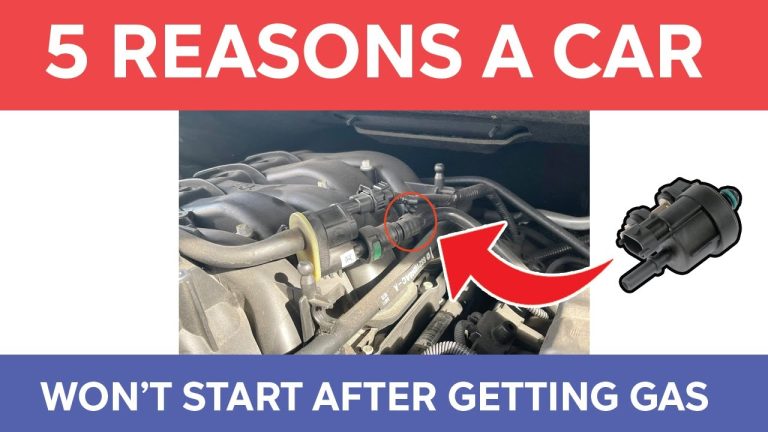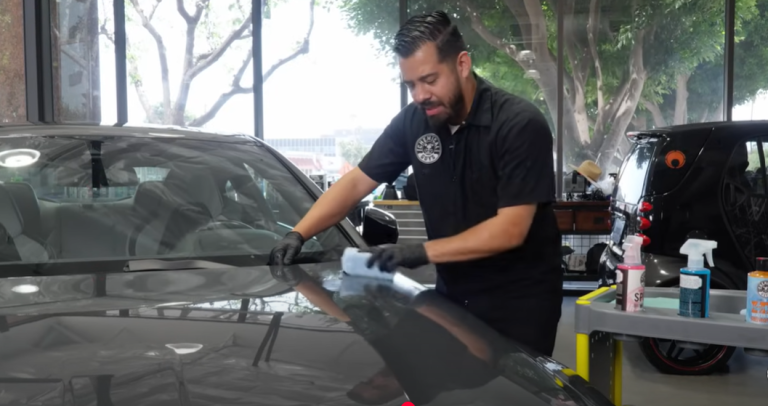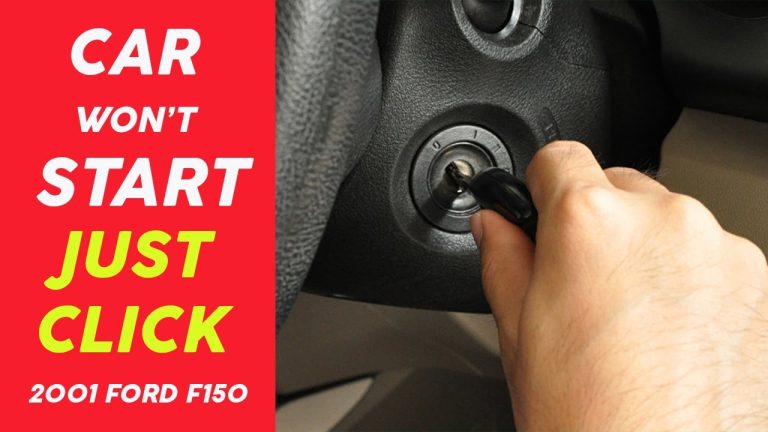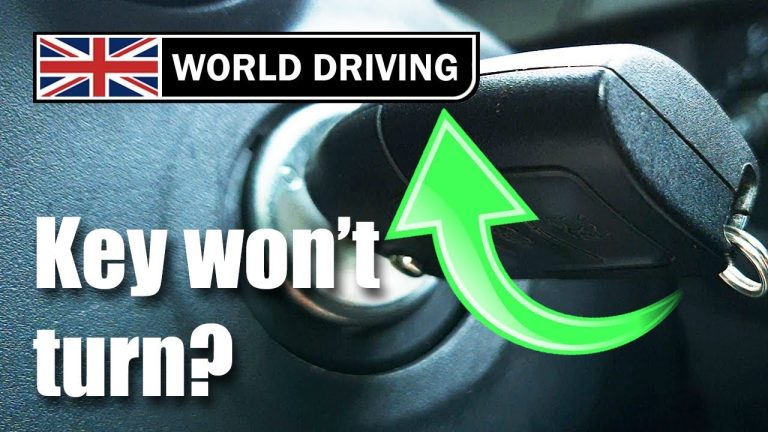Subaru Won’t Start: Troubleshooting Tips & Solutions
If your Subaru won’t start, it could be due to a dead battery, faulty starter, bad alternator, or fuel system issues. Sometimes, problems with the ignition switch or security system can also prevent it from starting. Diagnosing the exact cause early helps avoid costly repairs and keeps your Subaru running smoothly.
Panic begins to set in, and you’re left wondering what could possibly be wrong. Don’t worry—you’re not alone. Many Subaru owners have faced this exact situation, and fortunately, there are solutions that can get you back on the road in no time.
We’ll explore the most common reasons your Subaru won’t start and provide practical tips to help you troubleshoot the issue. Read on, and discover how you can regain control over your day without the stress of a non-starting car.

Credit: www.reddit.com
Subaru Won’t Start
Common Causes For Starting Issues
Experiencing a Subaru that won’t start often stems from battery issues. Sometimes, it’s due to a faulty starter. Ignition switch problems can also be the culprit.
If you’ve ever faced the frustration of turning your Subaru’s key only to be met with silence, you’re not alone. Starting issues can be a common headache for many Subaru owners. Understanding the root causes can save you time, money, and stress. By identifying these common culprits, you can tackle the problem head-on and get back on the road with confidence.
A dead or weak battery is a frequent cause of starting troubles. If your Subaru’s lights are dim or the engine doesn’t crank, it’s time to check the battery. Sometimes, simple corrosion on the terminals can prevent a good connection. Cleaning them with a mix of baking soda and water might be all that’s needed.
Read more: Car Cranks But Does Not Start: Troubleshooting Guide
Starter Motor Issues
The starter motor is like the heart of your car’s ignition system. If it fails, your engine won’t start. You might hear a clicking sound when you try to start your car, indicating a faulty starter. Replacing or repairing the starter motor might solve the issue.
Ignition Switch Failure
A worn-out ignition switch can prevent your Subaru from starting. If turning the key feels loose or there’s no response, this could be the problem. Replacing the ignition switch can be a straightforward fix, restoring your car’s reliability.
Fuel System Malfunctions
Without fuel, your Subaru won’t start. A clogged fuel filter or failing fuel pump can prevent the necessary fuel from reaching the engine. You might notice sputtering sounds, or the engine may crank without starting. Regular maintenance can help prevent these issues.
Security System Interference
Sometimes, the very system designed to protect your car can cause starting problems. If your Subaru’s security system malfunctions, it might prevent the car from starting. Checking the system settings or consulting your manual can sometimes offer a quick solution.
Personal Experience Insight
I once spent a snowy morning trying to figure out why my Subaru wouldn’t start. It turned out to be a simple battery issue that I could fix with a quick jump start from a neighbor. This taught me the value of keeping jumper cables in the trunk. What small step can you take today to prepare for unexpected car troubles?
Understanding these common causes for starting issues can empower you to address them swiftly and effectively. Have you identified any other starting problems with your Subaru? Share your experiences and solutions in the comments below. Let’s help each other keep our Subarus running smoothly!
Read more: Honda Accord is Not Starting: Troubleshoot Now!
Battery Problems
Subaru won’t start? The battery could be the culprit. It’s a common issue. Luckily, identifying battery problems is straightforward.
What Causes Battery Drain?
Short drives can drain your battery. Electronics left on also cause problems. Extreme weather affects the battery too.
Signs Of A Weak Battery
Car lights dimming? That’s a sign. Slow engine cranking is another. A clicking sound when turning the key is a red flag.
Checking The Battery Terminals
Inspect the terminals for corrosion. A white, powdery substance may cover them. Cleaning them can help restore connection.
Testing Battery Voltage
Use a multimeter to test the battery. A healthy reading is above 12.4 volts. Anything lower might need charging or replacement.
Jump-starting Your Subaru
Know how to jump-start safely. Connect the cables correctly. Ensure the donor car is compatible and running.
When To Replace The Battery
If jump-starting fails, replacement may be necessary. Most batteries last three to five years. Frequent issues hint at the need for a new battery.
Ignition System Failures
The ignition system is crucial for starting your Subaru. It generates the spark needed to ignite the fuel in the engine. When this system fails, your car won’t start. Understanding the common issues in the ignition system can help address the problem swiftly.
Common Causes Of Ignition System Failures
Ignition system failures often stem from faulty spark plugs. Worn-out spark plugs can’t produce a strong spark. This weakens the ignition process. Another frequent issue is a failed ignition coil. The coil supplies the necessary voltage to the spark plugs. If it fails, your car won’t start. A defective ignition switch can also cause problems. This switch sends power to the electrical systems in your car. A malfunctioning switch disrupts the ignition process.
Signs Of A Faulty Ignition System
Difficulty starting your Subaru is a primary sign. Listen for a clicking noise when turning the key. This noise suggests a problem with the ignition system. A misfiring engine is another indicator. This occurs when the spark plugs don’t ignite the fuel properly. Reduced fuel efficiency may also point to ignition issues. Pay attention to these signs for early detection.
How To Diagnose Ignition System Issues
Check the spark plugs first. Look for wear and tear on the tips. Use an ohmmeter to test the ignition coil. Compare the reading to your car’s manual. Inspect the ignition switch for any visible damage. Testing these components can pinpoint the issue.
Preventing Ignition System Failures
Regular maintenance helps prevent ignition problems. Replace spark plugs according to the manufacturer’s guidelines. Check the ignition coil for signs of wear. Keep the ignition switch clean and free of debris. Routine checks ensure a reliable ignition system.

Credit: www.reddit.com
Fuel System Troubles
Fuel system issues can prevent your Subaru from starting. Identifying these issues is crucial for getting back on the road. A malfunctioning fuel system can cause engine trouble. It affects the fuel delivery to the engine. Without proper fuel, starting becomes difficult.
Fuel Pump Problems
The fuel pump moves fuel from the tank to the engine. A faulty fuel pump may not deliver enough fuel. This causes starting issues. Listen for a humming sound when turning the key. No sound could mean a bad fuel pump.
Clogged Fuel Filter
A clogged fuel filter can block fuel flow. This results in engine starting problems. Over time, dirt and debris can build up. Replacing the fuel filter regularly helps maintain flow. Check your vehicle’s manual for the replacement schedule.
Fuel Injector Issues
Fuel injectors spray fuel into the engine. Dirty or clogged injectors disrupt the spray pattern. This leads to poor combustion and starting trouble. Cleaning fuel injectors may resolve the issue. Consider using a fuel injector cleaner additive.
Empty Fuel Tank
It sounds simple, but an empty tank won’t start the car. Always check the fuel gauge before troubleshooting. Sometimes, the gauge might be faulty. In such cases, refill the tank to be sure.
Faulty Fuel Pressure Regulator
A fuel pressure regulator maintains the right pressure for injectors. If faulty, it can cause low fuel pressure. This affects engine performance and starting. A mechanic can test and replace it if needed.
Electrical Component Malfunctions
Electrical component malfunctions can be a common reason your Subaru won’t start. Understanding these issues can help you diagnose the problem quicker. It’s often not the engine but smaller components that fail. These problems can be frustrating, especially if you’re not sure what to check first. Let’s dive into some key electrical components that might be causing the issue.
Battery Issues
A dead battery is a frequent culprit when a Subaru won’t start. Check for corrosion on the battery terminals. Corroded connections can prevent the battery from delivering power. Ensure that the battery cables are tightly connected. Loose cables can interrupt the electrical flow. Consider the age of your battery. Older batteries may not hold a charge well.
Faulty Alternator
The alternator charges the battery while driving. A failing alternator might drain the battery. Listen for unusual noises from the engine area. These might indicate alternator problems. Look for warning lights on the dashboard. They often alert you to charging issues. Have a professional test the alternator if you suspect issues.
Starter Motor Problems
The starter motor is crucial for starting the engine. If you hear a clicking sound, the starter might be faulty. This component turns the engine over. Check the starter motor connections. Loose wires can prevent it from working. Consider if the starter motor is old. Wear and tear can affect its performance.
Blown Fuses
Fuses protect your Subaru’s electrical components. A blown fuse can stop your car from starting. Check the fuse box for any blown fuses. Replace them with new ones of the same amperage. Always keep spare fuses in your car. They are an easy fix for electrical issues.
Ignition Switch Failure
The ignition switch starts the electrical systems. If faulty, it can prevent your Subaru from starting. Listen for silence when turning the key. That might indicate a failed ignition switch. Check if the dashboard lights up. If not, the switch could be the issue. Consult a mechanic to replace a faulty ignition switch.

Credit: www.youtube.com
Frequently Asked Questions
What Would Cause A Subaru Not To Start?
A Subaru might not start due to a dead battery, faulty starter, or bad ignition switch. Check for fuel issues, clogged filters, or spark plug problems. Inspect the alternator and ensure connections are secure. Always address electrical system faults promptly for reliable starting.
Why Won’t My Subaru Engine Start?
Your Subaru engine may not start due to a dead battery, faulty starter, or fuel system issues. Check for electrical connections, ensure there’s enough fuel, and inspect the ignition system. Regular maintenance can prevent these problems. If issues persist, consult a professional mechanic for a thorough diagnosis.
How Do I Manually Start My Subaru?
Insert the key into the ignition. Press the brake pedal. Turn the key clockwise to start the engine. Ensure the gear is in “Park” or “Neutral” for automatic, and press the clutch for manual transmission. Release the parking brake. Your Subaru should start successfully.
What Does It Mean When A Car Has Power But Wont Start?
A car having power but not starting may indicate issues like a faulty starter, dead battery, or fuel system problem. Check for loose connections or a malfunctioning ignition switch. Consulting a mechanic can help diagnose and resolve the issue efficiently.
Regular maintenance prevents such occurrences.
Why Won’t My Subaru Start?
Check battery connections. Loose or corroded terminals can prevent starting. Ensure they are clean and tight.
Conclusion
A Subaru that won’t start can be frustrating. Start by checking the basics. Look at the battery and fuel. Ensure connections are tight and secure. Sometimes, simple issues cause big problems. Regular maintenance can prevent future headaches. Keep tools handy for quick checks.
Don’t hesitate to seek professional help if needed. Your Subaru deserves care and attention. Stay informed and proactive. Safe driving depends on a healthy car. Trust your instincts if something feels off. Being prepared saves time and stress. Enjoy the road with confidence and peace of mind.







